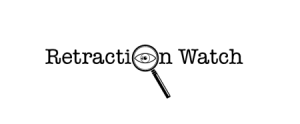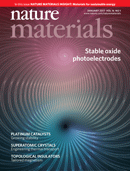 The week at Retraction Watch featured the harrowing story of a would-be whistleblower subjected to a forced mental exam (part of our partnership with the news team at Science), and Jeffrey Beall’s site about predatory publishers going dark. Here’s what was happening elsewhere: Continue reading Weekend reads: A course on calling bullshit?; What closure of Beall’s list means; More preprint debate
The week at Retraction Watch featured the harrowing story of a would-be whistleblower subjected to a forced mental exam (part of our partnership with the news team at Science), and Jeffrey Beall’s site about predatory publishers going dark. Here’s what was happening elsewhere: Continue reading Weekend reads: A course on calling bullshit?; What closure of Beall’s list means; More preprint debate
Author: Ivan Oransky
Why did Beall’s List of potential predatory publishers go dark?

Jeffrey Beall, the University of Colorado Denver librarian who has since 2008 chronicled “potential, possible, or probable” predatory publishers, has — at least for now — pulled the plug on his influential, and at times controversial, site.
The decision to take down the site — and Beall’s faculty page at the Auraria Library, where he remains a tenured associate professor — was his own, the University of Colorado Denver tells Retraction Watch.
The site, scholarlyoa.com, which just earlier this month included a list of more than 1,000 such publishers, now contains no information. The sudden change was noted Sunday on Twitter, where questions about the move — catalogued, along with some answers, by Emil Karlsson — swirled for two days. Beall’s faculty page was also taken down. Continue reading Why did Beall’s List of potential predatory publishers go dark?
Breast cancer studies by fired Pfizer employee retracted
 Last year, Pfizer fired one of its scientists following an investigation that ended with requests for retraction of five of her studies. Now, two of the five papers, which were first flagged on PubPeer, have been retracted.
Last year, Pfizer fired one of its scientists following an investigation that ended with requests for retraction of five of her studies. Now, two of the five papers, which were first flagged on PubPeer, have been retracted.
One notice cites the Pfizer investigation, which found that cancer researcher Min-Jean Yin had included duplicated images in all five papers. Yin is the last author on both retracted papers.
Here’s the first notice from Clinical Cancer Research, which says most or all of the questioned images appear to be duplicates, and Pfizer — who sponsored the study and requested the retraction — can’t find the originals:
Continue reading Breast cancer studies by fired Pfizer employee retracted
Weekend reads: Citation cartels; less authorship credit for women; theft by peer reviewers
 The week at Retraction Watch featured a discussion of whether peer reviewers should replicate experiments, and a look at whether social psychology really has a retraction problem. Here’s what was happening elsewhere: Continue reading Weekend reads: Citation cartels; less authorship credit for women; theft by peer reviewers
The week at Retraction Watch featured a discussion of whether peer reviewers should replicate experiments, and a look at whether social psychology really has a retraction problem. Here’s what was happening elsewhere: Continue reading Weekend reads: Citation cartels; less authorship credit for women; theft by peer reviewers
Weekend reads: Pseudoscience in the literature; a world without journals; “invisible and abandoned” trials
 The week at Retraction Watch featured the heartfelt response of a researcher when she found out a paper she’d reviewed had been retracted, and a new member of our leaderboard. Here’s what was happening elsewhere: Continue reading Weekend reads: Pseudoscience in the literature; a world without journals; “invisible and abandoned” trials
The week at Retraction Watch featured the heartfelt response of a researcher when she found out a paper she’d reviewed had been retracted, and a new member of our leaderboard. Here’s what was happening elsewhere: Continue reading Weekend reads: Pseudoscience in the literature; a world without journals; “invisible and abandoned” trials
Weekend reads: Fake news in science; how not to stress about science; another hilarious sting
 The final week of 2016 at Retraction Watch featured the retraction of a high-profile paper on diabetes from Harvard, and the retraction of a JAMA article on whether zinc was useful for the common cold. Here’s what was happening elsewhere: Continue reading Weekend reads: Fake news in science; how not to stress about science; another hilarious sting
The final week of 2016 at Retraction Watch featured the retraction of a high-profile paper on diabetes from Harvard, and the retraction of a JAMA article on whether zinc was useful for the common cold. Here’s what was happening elsewhere: Continue reading Weekend reads: Fake news in science; how not to stress about science; another hilarious sting
The Retraction Watch 2016 year in review — and a sneak peek at our database
 It’s been another exciting year for us at Retraction Watch. As always, there has been more to cover than we have time for. At the same time, we’ve expanded our efforts in other media, telling bigger stories and offering more analysis. And we’ve made major progress on our database — more on that in a moment.
It’s been another exciting year for us at Retraction Watch. As always, there has been more to cover than we have time for. At the same time, we’ve expanded our efforts in other media, telling bigger stories and offering more analysis. And we’ve made major progress on our database — more on that in a moment.
A sampling of what happened this year: Continue reading The Retraction Watch 2016 year in review — and a sneak peek at our database
We removed a post temporarily. It’s back. Here’s why.
 On December 15, we removed a post from view as a result of a law that some have misused to have content removed from the web. Today, we have reinstated that post.
On December 15, we removed a post from view as a result of a law that some have misused to have content removed from the web. Today, we have reinstated that post.
Here’s what the post about, if you’re curious: Continue reading We removed a post temporarily. It’s back. Here’s why.
JAMA article on zinc for the common cold retracted
 Authors have retracted a JAMA article summarizing the evidence behind the benefits of a supplement, after the systemic review upon which it was based was withdrawn.
Authors have retracted a JAMA article summarizing the evidence behind the benefits of a supplement, after the systemic review upon which it was based was withdrawn.
The 2014 paper, “Oral Zinc for the Common Cold,” drew from a 2013 Cochrane Review, considered the gold standard for rigorous analyses of clinical treatments. That Cochrane review was withdrawn last year, a decision that the editors upheld this past September. Both were co-authored by Rashmi Ranjan Das, of the All India Institute of Medical Sciences, in Bhubaneswar, and Meenu Singh, of the Post-Graduate Institute of Medical Education and Research, in Chandigarh, India.
JAMA editor in chief Howard Bauchner told Retraction Watch that this week’s retraction followed an investigation by the journal: Continue reading JAMA article on zinc for the common cold retracted
Lack of reproducibility triggers retractions of Nature Materials articles
 The authors of a highly cited 2015 paper in Nature Materials have retracted it, after being unable to reproduce some of the key findings.
The authors of a highly cited 2015 paper in Nature Materials have retracted it, after being unable to reproduce some of the key findings.
The move prompted the journal to also retract an associated News & Views article.
Here’s the retraction notice for “Fast and long-range triplet exciton diffusion in metal–organic frameworks for photon upconversion at ultralow excitation power:” Continue reading Lack of reproducibility triggers retractions of Nature Materials articles